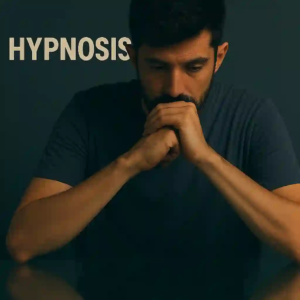 Tobacco use has long been one of the most serious public health concerns worldwide. Smoking is the leading preventable cause of illness, suffering, and death, affecting millions every year. As awareness grows about the dangers of smoking cigarettes, more people are exploring effective and alternative methods to stop smoking. Among these methods, hypnosis has emerged as a promising tool in helping individuals quit smoking for good.
Tobacco use has long been one of the most serious public health concerns worldwide. Smoking is the leading preventable cause of illness, suffering, and death, affecting millions every year. As awareness grows about the dangers of smoking cigarettes, more people are exploring effective and alternative methods to stop smoking. Among these methods, hypnosis has emerged as a promising tool in helping individuals quit smoking for good.
While traditional cessation aids like nicotine patches, medications for smoking cessation, or even nicotine replacement therapy (NRT) are still widely used, many are turning toward hypnotherapy for smoking cessation due to its unique approach that targets the subconscious mind. This article explores how hypnosis to quit smoking works, its benefits, and why it might be the solution you've been looking for.
Understanding the Smoking Habit
Before exploring hypnosis, it's important to understand how smoking develops into an addiction. For many people, smoking begins as a social or emotional activity — a way to relax, cope with stress, or fit in. However, over time, nicotine leads to chemical dependence, making the urge to smoke not just psychological, but physical as well.
Nicotine dependence alters brain chemistry, reinforcing the habit every time a person lights a cigarette. This is why even those who desperately want to quit find themselves going back — not just because of habit, but because of powerful withdrawal symptoms like anxiety, restlessness, irritability, and cravings.
What Is Hypnosis?
Hypnosis is a state of focused relaxation in which the mind becomes more open to suggestion. It is often described as a trance-like state, though the person under hypnosis remains fully aware and in control. Clinical hypnosis, when used therapeutically, aims to reprogram subconscious patterns of thought and behavior.
In the context of smoking cessation, hypnosis focuses on changing the subconscious associations tied to smoking. Through repeated sessions or even one session in some cases, hypnosis may help weaken the desire to smoke and strengthen the will to stop.
How Hypnosis Works for Smoking Cessation
 Hypnosis works by guiding the smoker into a deeply relaxed state sometimes called sleep hypnosis, though it’s not the same as actual sleep. Once in this state, a hypnotherapist or audio session delivers targeted suggestions to help patients quit. These suggestions might include visualizing a healthier future, associating smoking with negative sensations, or imagining life as smoke-free.
Hypnosis works by guiding the smoker into a deeply relaxed state sometimes called sleep hypnosis, though it’s not the same as actual sleep. Once in this state, a hypnotherapist or audio session delivers targeted suggestions to help patients quit. These suggestions might include visualizing a healthier future, associating smoking with negative sensations, or imagining life as smoke-free.
The idea is to replace the habitual “reward” of smoking with new, positive associations. Instead of reaching for a cigarette to manage stress or boredom, the brain begins to link those triggers with healthy responses like deep breathing, relaxation, or physical movement.
Hypnosis to Stop Smoking vs. Traditional Methods
Compared to other smoking cessation methods such as medications or behavioral therapy, hypnosis takes a less intrusive and more natural approach. Instead of relying on external substances, it uses the mind’s own power to facilitate change.
Some studies, including those found in the Cochrane Database of Systematic Reviews, suggest that hypnosis can be effective for smoking cessation, especially when combined with a desire to quit. Evidence that hypnosis helps people quit smoking is still growing, but many individual success stories and smaller trials show promising results.
Can Hypnosis Help You Quit Smoking?
 Yes hypnosis can help people quit smoking, especially those who are mentally ready and committed. It is particularly useful for smokers who:
Yes hypnosis can help people quit smoking, especially those who are mentally ready and committed. It is particularly useful for smokers who:
- Have tried to quit before but relapsed
- Want a non-chemical solution
- Struggle with stress or emotional triggers
- Are interested in mindfulness and self-awareness
Many patients report that hypnosis helped them stay calm during the withdrawal phase and reduced their cravings significantly. Others say that after one hypnosis session, their desire to smoke vanished completely.While some people explore nicotine replacement therapy or medications, others choose to quit smoking cold turkey a method that works best when combined -with mental conditioning tools like hypnosis.
Self-Hypnosis and At-Home Techniques
For those who prefer not to visit a hypnotherapist, self-hypnosis is a viable option. With practice, self-hypnosis to quit smoking can be nearly as effective as clinical sessions. Tools like sleep hypnosis audio, mobile apps, or guided self-hypnosis videos are available online and can help users enter a state of focused relaxation where they can deliver positive suggestions to themselves.
Self-hypnosis requires consistency, patience, and belief in the process. It's not a magic cure, but when practiced regularly, it can rewire the subconscious mind to reject the smoking habit.
Clinical Hypnosis and Hypnotherapy Sessions
A professional hypnotherapy session typically involves a consultation followed by guided relaxation. The hypnotherapist might use techniques like visualization, repetition, or suggestion to weaken the urge to smoke and enhance motivation to quit.
Hypnotherapy for smoking cessation can take multiple forms from one-on-one sessions to group hypnosis classes. Some programs combine hypnotherapy with cognitive behavioral therapy (CBT) or acupuncture and hypnosis for a more comprehensive approach.
Clinical practitioners emphasize that hypnotherapy is more effective when paired with a strong personal commitment. The treatment for smoking cessation doesn’t stop after the session follow-up, practice, and lifestyle adjustments are equally important.






